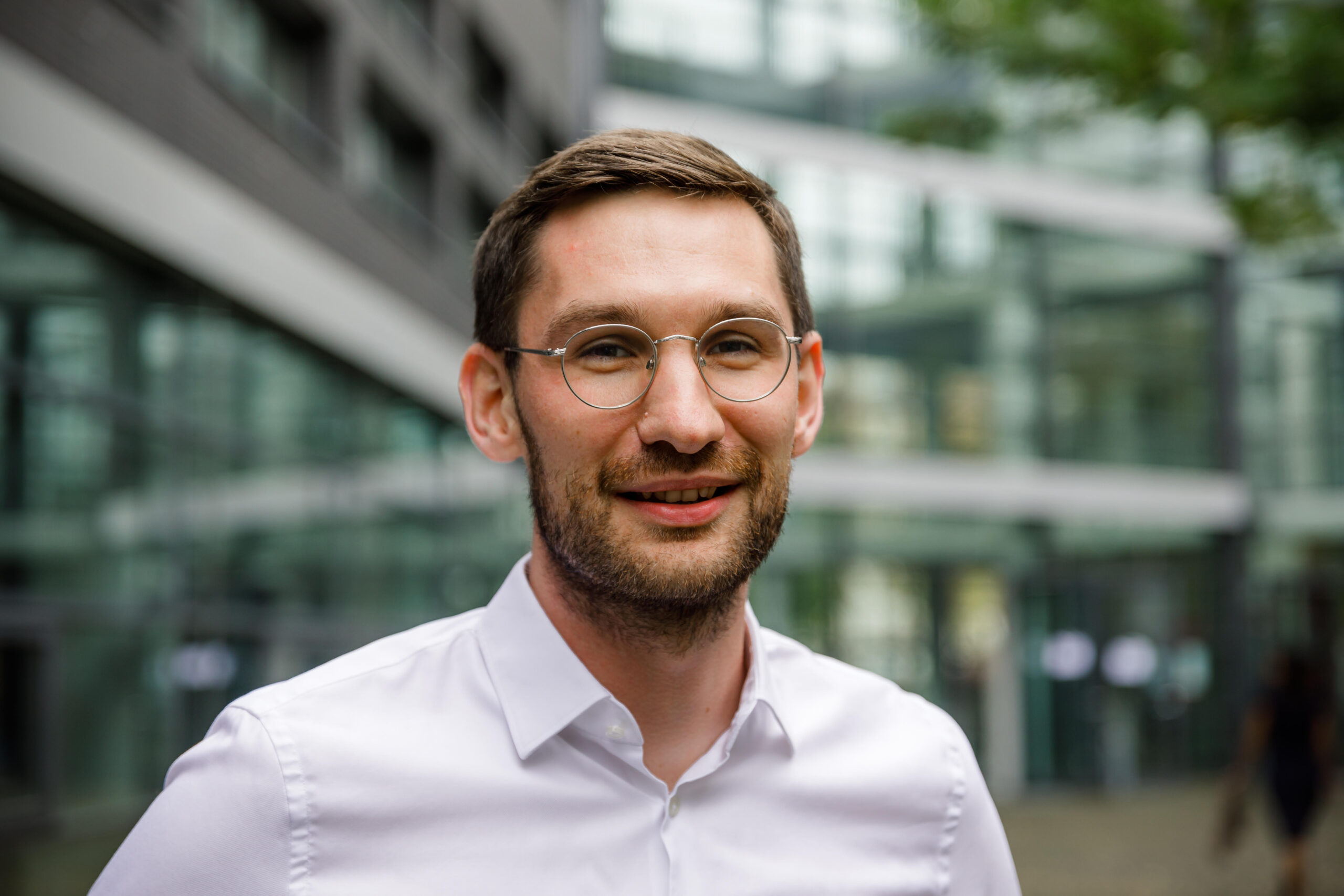May we introduce: Stephan Krehl from Agicap
Working in the FinTech industry is like coming and going, requires a high degree of professionalism in a thoroughly relaxed working environment and is above all characterised by innovation as well as good, clever and future-oriented ideas, according to the widespread consensus. But who are actually the brains and movers behind these creative thought processes, at the intersection of finance, digital technologies and entrepreneurship? In our Faces of FinTech series, we regularly ask one person from the payments and banking industry the same ten questions. This time Stephan Krehl answers our questions.
May we present…
In the course of our day-to-day work, we frequently encounter exciting people who work in the same field, who we meet only once or every now and then, or who have even grown very fond of us privately – each of them has a story of their own. We interviewed a few of thesepeople from our closest FinTech environment to put a face to them. To share why this industry is much more to them than just another way to pay his rent. We would like to briefly portray and introduce these people and their vita in a category of their own and have designed a questionnaire that is always the same. This time Stephan Krehl answers our questions. Stephan Krehl is Country Manager at Fintech Agicap Germany, which specializes in simple liquidity planning for SMEs.
Who are you, what do you do?
My name is Stephan Krehl and I have been responsible for the German market as Country Manager at Agicap since October 2020. Before joining Agicap, I worked as a consultant for McKinsey, where I gained a lot of experience in the banking and insurance industry. I learned how complex liquidity planning is for many companies and the difficulties that arise.

I have always been fascinated by the startup world, so I started focusing on entrepreneurship in my studies during my management masters at HEC Paris and MIT. I have also founded a company myself in the past and therefore know all the things you have to look out for when you want to implement a business idea. Basically, for me, as well as for the industry in which I work, it is important to never stand still, to constantly develop and to learn from one’s mistakes.
What does a classic day in your life look like?
The nice thing about my day-to-day work is that there is always movement. So, strictly speaking, the classic day in my life doesn’t exist. I am in close contact with both existing and new customers on a daily basis. I also work on the continuous development of our product and coordinate the various teams within the company. The biggest priority for me as Country Manager is to be able to offer our solution to as many partners as possible and to open up the German market with all its facets for Agicap.
What were your first encounters with the payment and banking industry?
My enthusiasm for the world of finance developed during my first internship in my Bachelor’s degree, at a hedge fund in Zurich. I then went on to specialize in banking and insurance at McKinsey, and then focused specifically on startups in the FinTech space. With Agicap, I have now really arrived at the heart of the payments and banking industry, as any company that wants to survive in the market in the long term relies on liquidity planning.
When did you first notice the word FinTech?
The first time I noticed the word was in my studies, when I helped set up the Entrepreneurship Forum ‘HEC SEED’ at HEC Paris. At the time, we were looking for various participants for this and the providers from the FinTech industry had piqued my interest. During this time, I also had my first contact with Berlin startups from the field and was thus able to establish initial contacts with the Berlin FinTech industry.
How do you define FinTech?

FinTech to me means solving a real problem in finance through a new technology or innovation. Like our startup that simplifies complex liquidity planning processes for any business using AI, Open Banking and excellent customer service.
What do you think established companies do better than FinTechs?
Established companies have a certain stability in their processes and are good at dealing with high complexity. They often offer a comprehensive range of products, trying to cover every area, rather than focusing specifically on one problem, as we do in the FinTech industry.
What can you learn from FinTechs?
Definitely dynamism, agility and proximity to the customer. FinTechs manage to implement changes easily, to adapt quickly and flexibly to a person or organization. Another point is that we work in close contact with the customer. This means that we can solve problems within a few days, whereas established companies usually need weeks or even months to do so.
Why do established (large) companies have such a hard time with digitalization?
I think there are two starting points here. Firstly, the many outdated systems that cannot be converted quickly due to various regulations. Sometimes it takes years here until a change can be enforced. In addition, the structures within the company are not really innovation-friendly. This often makes it difficult for established companies to attract young talent interested in rapid change and solutions.
What makes your job interesting on a daily basis?
In my job, I don’t just focus on one thing, but gain insights into all areas of the company on a daily basis. Working closely with our existing clients allows me to learn a lot about how different companies operate. It’s exciting to see that every industry is set up completely differently, but at the end of the day, the heart of every business remains liquidity planning.
“It’s exciting to see that every industry is set up differently, but at the end of the day, the heart of every business remains liquidity planning.”
What would you do for a living if you weren’t working in the payments and banking industry?
I think I would be in the sustainability field. I would want to tackle the problems at the root, and would therefore be particularly committed to waste reduction and sustainable resource distribution.
What are you proud of?
I am proud to have been able to manage the German Agicap office, which now has 25 employees, without any previous experience in sales. When we started in Germany six months ago, no one could have imagined how successful our development on the German market would be in such a short time. As a team, we have already managed to account for more than a third of Agicap’s total sales in the last month.
Why aren’t there more women in tech?
We have 40% women in our office. Generally speaking, however, it can be said that the industry is not considered particularly attractive. Companies in the tech sector often live from funding round to funding round and can only offer fixed-term contracts, making it difficult to plan for the long term, or even the medium term.
Which company would you like to work for one day?
I would love to get a behind the scenes look at the Chinese player ByteDance. There I find it particularly exciting that, similar to us, the topic of internationalization is a main aspect. As a Chinese company, they have managed to serve a global mass market and thus establish themselves internationally.
Who would you like to have a beer with?
I’d love to have that beer with Jonas Deichmann. He’s an extreme cyclist and just a super exciting character. I think there’s a lot to learn from him when it comes to goal setting and perseverance.
